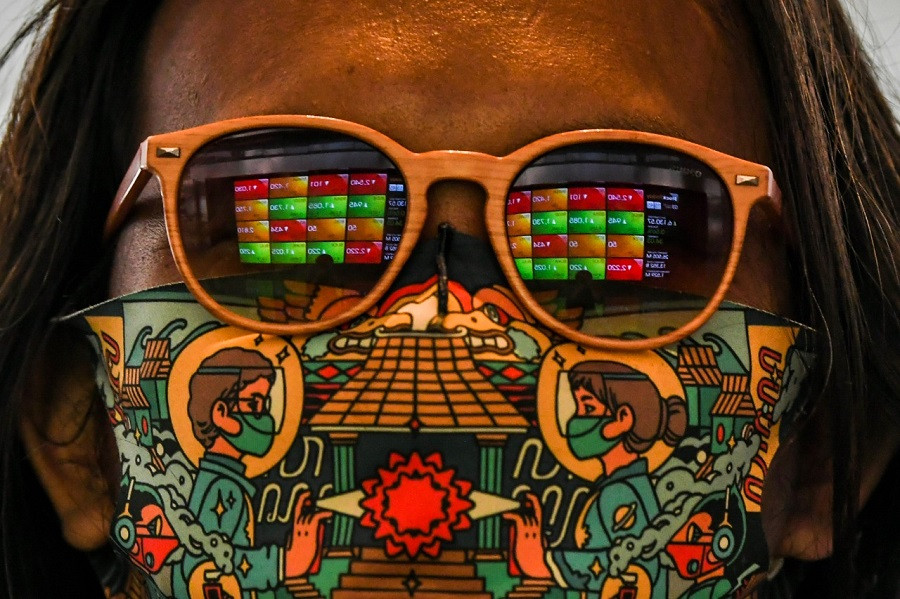Popular Reads
Top Results
Can't find what you're looking for?
View all search resultsPopular Reads
Top Results
Can't find what you're looking for?
View all search resultsAnother dot-com bubble?
It was the promise of big dividends that prompted regulators to make exceptions for tech unicorns.
Change text size
Gift Premium Articles
to Anyone
I
t’s turned out to be a blockbuster. To the relief of many investors and start-up watchers, especially retail ones, the shares of Bukalapak, the first Indonesian unicorn to be listed on the Indonesia Stock Exchange (IDX), have continued to soar. The share price shot up so quickly, in fact, that the IDX’s daily price increase cap was triggered for the second session in a row on Monday.
A lot is riding on the success of the IPO. All eyes were trained on the e-commerce platform simply because it was the country’s first start-up to go public. Following Bukalapak, it is likely that super app platform GoTo, formed by the merger between ride-hailing giant Gojek and e-commerce platform Tokopedia, will join the fray.
If Bukalapak, a smaller start-up, can create so much excitement on the trading floor, imagine the hype that GoTo, with a valuation of between $25 billion and $30 billion, could generate among investors.
Bukalapak’s early success is also an indicator of the potential for e-commerce to drive economic growth, especially during the COVID-19 pandemic, as many customers are forced to stay home and do most of their shopping online.
Indonesia has the largest digital economy in Southeast Asia, with approximately 40 percent of the regional market share. In 2020, US$44 billion in online sales were made in the country, and e-commerce accounted for 72 percent of the value of the nation’s digital economy.
It was the promise of big dividends from e-commerce that prompted regulators to make exceptions for tech unicorns. To allow these firms, which barely register any profits from their operations, to list on the IDX, the exchange has relaxed regulations, including one that would have prevented loss-making companies from being listed on the exchange’s main board.
Optimists say that while none of these unicorns have made any money yet, there are now a variety of ways for them to gain profits, unlike during the dot-com bust in the early 2000s, when few pathways existed for tech companies to make headway. Amazon.com did not turn a profit for 20 years, but now the e-commerce giant stands to eliminate swaths of competition by branching out into the cloud computing business.
GoTo and Bukalapak don’t have to take on Amazon in cloud computing, but they believe that there’s a path to profitability. Bukalapak in particular is quite optimistic that it will be able to make inroads by connecting millions of mom-and-pop stores throughout the country.
The bottom line is that these unicorns need to make money and do it quickly. The soaring stock prices and the mania surrounding the companies should reflect sound underlying economics. Any euphoria over start-ups should be built on firmly rational foundations.
Past experiences, including the dot-com bubble, tulip mania and the Wall Street crash of 1929, prove that at times, investors think as a herd and that crazes often end with busts rather than booms.
As stock prices soar, we should remain cautiously optimistic.









